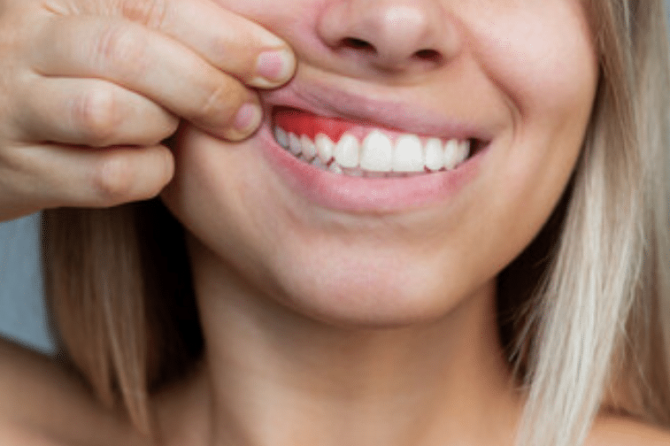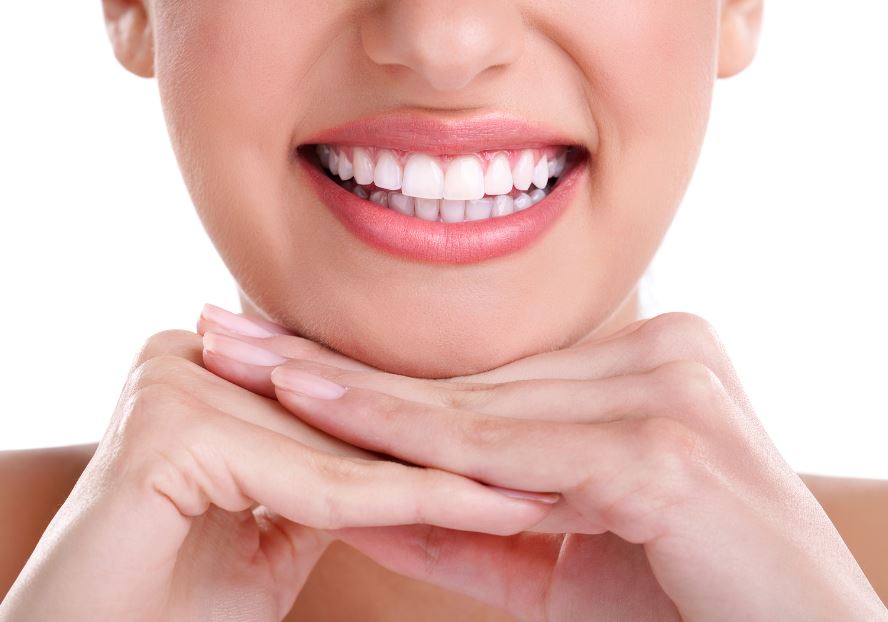
How To Regrow Bone Loss From Periodontal Disease Naturally?
What is Periodontal Disease?
Periodontal disease, also known as gum disease, is an infection of the structures that support the teeth. It is caused by the buildup of plaque, a sticky substance made up of bacteria. If left untreated, it can lead to not only dental problems, but serious health issues such as heart and lung diseases.
Why does periodontal disease cause bone loss?
Periodontal disease causes irreversible damage to the structures that support your teeth and the surrounding bones. As the bacteria build up, they dissolve the gums and cause inflammation, leading to damage in your teeth and bones. The longer the periodontal disease goes untreated, the more damage it will cause to your bones, eventually leading to bone loss.
Overview of Natural Treatments
If you are looking to naturally regrow bone loss from periodontal disease, there are several treatments that may help. Here is a list of some of the most popular natural treatments for helping with regrowth:
- Diet – Eating a healthy, balanced diet can help reduce symptoms and give your body the essential nutrients it needs to fight periodontal disease.
- Exercise – Exercise is important for causing regrowth of bones lost from periodontal disease, and helps to keep your overall health in check.
- Stress Management – Stress management is beneficial for overcoming periodontal disease symptoms and regrowing bone.
- Oral Hygiene – Consistent oral hygiene practices, like brushing and flossing, can slow down the progression of periodontal disease and its effects on your bones.
- Essential Oils and Herbal Remedies – Certain essential oils and herbal remedies can be used to stimulate bone growth in areas damaged by periodontal disease.
- Acupuncture and Chiropractic Care – Acupuncture and chiropractic care help to reduce the symptoms of periodontal disease and stimulate new bone growth.
- Vitamins and Supplements – Vitamins and supplements help to provide key nutrients for regrowing bone loss from periodontal disease.
- Surgery and Alternative Medicine – In rare cases, surgery and alternative medicine treatments may be used for regrowing bone tissue damaged by periodontal disease.
Diet and Periodontal Disease
One of the best ways to naturally reduce symptoms and regrow bones lost from periodontal disease is to watch what you eat. Eating a healthy and balanced diet can help support your body’s overall wellbeing, reduce inflammation, and potentially restore some of the lost bones in your mouth.
Certain foods, such as those high in sugar, are known to contribute to the development of periodontal disease, so it’s important to be mindful of the types of food and drinks you consume on a regular basis. Fruits, vegetables, and proteins are all great sources of essential vitamins and minerals that will help keep your body healthy and your teeth and gums strong.

A nutritious diet will also provide your body with the energy and nutrients it needs to fight bacteria and inflammation associated with periodontal disease. Foods that are high in essential vitamins, minerals, and antioxidants are especially beneficial because they help to reduce inflammation and boost the immune system.
- Fruits, vegetables, and plant-based proteins are packed with essential vitamins and minerals that help support the body’s health
- Avoid sugary and processed food that can be damaging to teeth and gums
- Focus on eating antioxidant-rich foods that reduce inflammation and keep the immune system strong
Exercise For Regrowth of Bones Lost from Periodontal Disease
Engaging in a regular exercise routine is essential for stimulating the growth of bones lost due to periodontal disease. Exercise helps to increase bone density and strengthen the bones, which can lead to a decrease in symptoms of periodontal disease. It’s important to find an exercise routine that is well-suited to your individual needs as it’s important to stay consistent with your workouts. Remember to always consult your doctor or dentist before engaging in any physical activity if you are concerned about the condition of your teeth and gums.
Some popular exercises to consider when looking to regrow bones lost from periodontal disease include walking, swimming, stretching, and strength training. Low-impact activities like walking and swimming are great for increasing blood flow to the affected area and strengthening the muscle tissue in the jaw, while stretches like yoga provide additional benefits such as improved flexibility and stress relief.
Strength training is also beneficial for regrowing bones lost from periodontal disease as it helps to build muscle mass and increase bone density. Be sure to talk to a professional trainer to ensure that you are performing the correct exercises and using proper form.
Finding the right exercise routine for you can be a challenge, but it’s essential for regrowing bones lost from periodontal disease. Whether you choose to go for a walk, swim laps in the pool, attend a yoga class, or lift weights in the gym, find an activity that you enjoy and stick with it. Incorporating physical activity into your lifestyle will help you to regain the strength and health of your teeth and gums.
Stress Management
Stress is an inevitable part of life, but if it’s not managed correctly, it can have a negative effect on your overall health. Stress has been linked to a number of different illnesses, including periodontal disease. Research suggests that when stress is high, the body produces hormones that can weaken the immune system, making you more susceptible to periodontal disease.
Managing your stress levels is essential for overcoming periodontal disease and regrowing bones lost to the condition. You can manage your stress in a variety of ways, such as:
- Exercising regularly
- Getting enough sleep
- Practicing relaxation techniques
- Meditation and yoga
- Talking to friends and family about your worries
- Taking time for yourself to do activities you enjoy
Managing stress levels not only helps to reduce the symptoms of periodontal disease, but it also plays an important role in stimulating bone growth. When you are feeling less stressed and more relaxed, your body is better able to heal itself and provide the nutrients your body needs to mend the damage caused by periodontal disease.
Oral Hygiene
Good oral hygiene is one of the most important parts of treating periodontal disease and regrowing any bone loss it has caused. It involves regular brushing, flossing and rinsing to keep bacteria levels in your mouth under control. It is especially important to make sure you brush and floss around the area where the bone loss has occurred as this will help to prevent further damage.
Brushing your teeth twice a day helps remove plaque and food debris from around your teeth and gums. Make sure you use a toothbrush with soft bristles to avoid damaging your gums. Flossing regularly helps to remove any food particles or bacteria that may be hiding between your teeth. Rinsing with an antiseptic mouthwash helps to reduce the amount of bacteria present in your mouth.
Developing a good oral hygiene routine can help slow down the progression of periodontal disease and its effects on the bones of your mouth. The key is to try and do these things at least twice a day, ideally after meals.

Essential Oils and Herbal Remedies
Periodontal disease can have serious consequences for the bones in your mouth, but there is hope. Essential oils and herbal remedies can be very effective in helping to stimulate the regrowth of bones lost from periodontal disease. Here are some examples of essential oils and herbal remedies that may help:
- Tea Tree Oil: Tea tree oil has natural anti-inflammatory properties that can help reduce pain and swelling associated with periodontal disease.
- Oregano Oil: Oregano oil is naturally antimicrobial and can be used to reduce the buildup of bacteria on teeth and gums that can worsen periodontal disease.
- Thyme Oil: Thyme oil helps to reduce plaque buildup on teeth and gums and can help reduce the symptoms of periodontal disease.
- Sage Oil: Sage oil has natural antimicrobial and antioxidant properties that help to reduce inflammation associated with periodontal disease and promote healing.
- Turmeric: Turmeric is a spice that has natural antifungal and anti-inflammatory qualities that can help reduce the symptoms of periodontal disease.
- Garlic: Garlic is a natural antibiotic that can help to reduce the amount of bacteria in the mouth, which can help alleviate the symptoms of periodontal disease.
- Ginger: Ginger has natural anti-inflammatory properties that can help reduce swelling and pain associated with periodontal disease.
Essential oils and herbal remedies can be an effective way to help regrow bone loss from periodontal disease. It is important to speak to your doctor before beginning any natural treatments as they can interfere with certain medications or conditions.
Acupuncture and Chiropractic Care
Acupuncture and chiropractic care are two alternative treatments that can help reduce the symptoms of periodontal disease and stimulate new bone growth. Acupuncture is an ancient form of Chinese medicine that involves placing very thin needles on the body with the purpose of releasing blocked energy to help healing and relaxation. This type of treatment has been practiced for thousands of years and is believed to bring balance back to the body.
Chiropractic care is a form of alternative therapy that focuses on the musculoskeletal system. Through manual manipulation and adjustment, chiropractors are able to reduce pain and improve joint mobility in the areas affected by periodontal disease. Both acupuncture and chiropractic care can be used to help reduce inflammation and improve blood circulation in the area, which may aid in the regrowth of bone mass lost due to periodontal disease.
Vitamins and Supplements For Regrowing Bone Loss From Periodontal Disease
Vitamins and supplements can be a helpful tool for regrowing bone lost from periodontal disease. Vitamins are needed for the body to carry out its many functions, which includes the ability to repair tissue. One of the vitamins that has been studied in relation to periodontal disease is Vitamin D. Vitamin D plays a role in bone health and is important in helping the body absorb calcium, which is necessary for bone growth and development. Taking a Vitamin D supplement can be beneficial in helping to heal bone loss from periodontal disease.
In addition to Vitamin D, there are other vitamins and minerals that may be helpful in the process of regrowing bone lost from periodontal disease. Calcium, magnesium, and zinc are all known to play a role in bone health and can be found in certain foods or taken as supplements. Omega-3 fatty acids are also beneficial for bone health as they help reduce inflammation in the body. In some cases, doctors may prescribe antibiotics or other medications to help with the healing process.
It’s important to speak with your doctor before taking any vitamins or supplements as everyone’s needs are different. Your doctor can help you determine the best plan for you based on your specific condition and symptoms. Additionally, it’s best to take the recommended dosage of any vitamins and supplements you decide to take to maximize their effectiveness.
Surgery and Alternative Medicine
When it comes to regrowing bone lost from periodontal disease, there are several potential surgical and alternative medicine treatments that could be used. Depending on the severity of the condition, your doctor may recommend any combination of these treatments to help restore your oral health.
One of the most common treatments is periodontal surgery, which can help reduce the amount of plaque buildup in and around your teeth. This helps to protect the remaining bone tissue and prevent it from deteriorating further. Additionally, a dental implant may also be used for replacing lost teeth and bones, restoring structural support and providing better tooth alignment.
There are also some alternative medicine treatments that could be used to help regrow bone tissue damaged by periodontal disease. One such treatment is ozone therapy, which uses oxygen and ozone gas to reduce inflammation and promote healing. Acupuncture and chiropractic care may also provide much-needed relief from pain and discomfort associated with periodontal disease. Additionally, some natural remedies, such as essential oils and herbal remedies, have been known to help stimulate bone growth in areas affected by periodontal disease.
Future Chances of Regrowth
If you’ve experienced bone loss from periodontal disease, it can be difficult to know how to manage your lifestyle in order to maximize your chances of regrowth. There are a few simple steps you can take in order to give yourself the best possible chance at regrowth:
- Maintain Good Oral Hygiene – Brushing and flossing your teeth twice a day is essential for keeping your gums healthy, as well as preventing further bone loss. Make sure that you brush with a soft-bristled toothbrush and use fluoridated toothpaste. It’s also important to floss regularly, as this helps to remove plaque and bacteria that can lead to further bone loss.
- Eat a Healthy Diet – Eating a balanced diet rich in nutrients can help improve the overall health of your mouth, while also promoting healthier gums and teeth. Eating foods high in calcium and other minerals will help to boost the strength of your bones, allowing them to heal faster. Foods that are low in sugar will also help to reduce inflammation and swelling in the gums.
- Avoid Tobacco Products – Smoking and use of other tobacco products can greatly increase the risk of periodontal disease, making it more difficult to regrow lost bone. Quitting smoking and avoiding other tobacco products is one of the best ways to ensure that you are able to regrow the bone tissue you have lost.
- Manage Stress – Stress has been linked to an increase in gum disease, making it harder to treat. Therefore, it’s important to find ways to reduce stress in your life in order to ensure that your gums are healthy and able to handle regrowth of lost bone. Meditation, yoga and exercise are all great ways to reduce stress and improve your health.
- Visit Your Dentist Regularly – Regular checkups with your dentist are essential for monitoring your oral health, as well as detecting and treating any issues before they become serious. Your dentist can also provide guidance on helpful treatments and advice for maintaining your oral health.
By following these steps, you can give yourself the best possible chance of regrowing bones lost to periodontal disease. Keep in mind that regrowth is not an overnight process, and it may take some time before you can see significant changes. But with patience and dedication, you can effectively manage your lifestyle in order to maximize your chances of regrowth.
Conclusion
Periodontal disease can be an intimidating condition, but it does not have to be a life sentence. With the right diet, exercise, stress management, and oral hygiene practices, you can help reduce the progression of periodontal disease and begin to regrow bone tissue. In addition, alternative treatments such as acupuncture, chiropractic care, herbal remedies, and vitamins and supplements can be used to stimulate bone growth. Finally, surgery and other advanced treatments may be considered for more severe cases of periodontal disease.
Dealing with periodontal disease can be a challenge, but there is hope. Having a healthy lifestyle – from diet and exercise to stress management and oral hygiene – can help you recover and even reverse the effects of periodontal disease. You can beat this condition, and many people are living proof of that.
Questions and Answers Regarding Regrow Bone Loss from Periodontal Disease Naturally
- Q: What is periodontal disease?
A: Periodontal disease is an inflammatory condition of the gums caused by a buildup of plaque and bacteria. It is the leading cause of tooth loss and can damage the underlying bone structure that supports the teeth. - Q: What are some natural treatments to help regrow bone loss from periodontal disease?
A: Some natural treatments include eating a healthy, balanced diet; consistent exercise; stress management; daily oral hygiene practices; using essential oils and herbal remedies; acupuncture and chiropractic care; and taking vitamins and supplements. - Q: How does diet affect periodontal disease?
A: Eating a nutritious, balanced diet helps reduce the symptoms of periodontal disease, boosts your overall health, and can help slow down the progression of the disease. - Q: Are there any physical activities to help regenerate bone loss from periodontal disease?
A: Yes, engaging in regular exercise has been shown to help stimulate bone growth in areas lost to periodontal disease, helping to overcome its effects. Physical activities should be chosen based on fitness level and goals, with advice from a doctor or professional trainer. - Q: What are some alternative medicines or treatments available?
A: Alternative medicine includes acupuncture and chiropractic care, which help reduce the symptoms of periodontal disease and stimulate new bone growth. In some cases, surgery may be suggested as a potential option. - Q: What are the chances of regrowth in the future when managing periodontal disease naturally?
A: Consistently managing lifestyle factors such as diet, exercise, and stress levels can greatly improve one’s chances of regrowing bones from periodontal disease in the future. - Q: How can I find out more about successful recoveries from periodontal disease?
A: Reading personal stories of successful recoveries from periodontal disease can be inspiring and motivating. Many resources can be found online from both medical and patient experiences.
